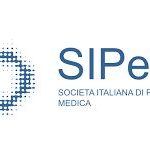
Avoid non-structured oral exams, and don’t use only cognitive tools of technical knowledge in the assessment of practical skills.
Despite the availability of a large literature on its unreliability, non-structured oral exams are still widely used in Italian courses, often as the only time of personal interaction with the teacher, even for assessment of practical skills, for which, any cognitive test would be insufficient. This apply to a great part of the activities of Continuous Medical Education, which mostly claim to pursue practical aims, but are evaluated at best with “checking boxes” tests (often cheating), and even more to many clinical clerkships and “professionalizing activities” in graduate courses, especially of Medicine, which often aren’t evaluated at all. Several valid alternatives exist, especially for practical tasks.
Sources
1. Holloway PJ, Hardwick JL, Morris J, Start KB. The validity of essay and viva voce examining technique. Br Dent J 1967; 123: 227-32.
2. Thomas CS, Mellsop G, Callender J, Crawshaw J, Ellis PM, Hall A, et al. The oral examination: a study of academic and non-academic factors. Med Educ 1993; 27: 433-39.
3. Yang JC, Laube DW. Improvement of reliability of an oral examination by a structured evaluation instrument. J Med Educ 1983; 58: 864-72.
4. Jayawickramarajah PT. Oral examinations in medical education. Med Educ 1985; 19: 290-3.
5. Anastakis DJ, Cohen R, Reznick RK. The structured oral examination as a method for assessing surgical residents. Am J Surg 1991; 162: 67-70.
6. Van der Vleuten C, Verhoeven B. In-training assessment developments in postgraduate education in Europe. ANZ J Surg 2013; 83: 454-9.
Attention. Please note that these items are provided only for information and are not intended as a substitute for consultation with a clinician. Patients with any specific questions about the items on this list or their individual situation should consult their clinician.


Recent Comments